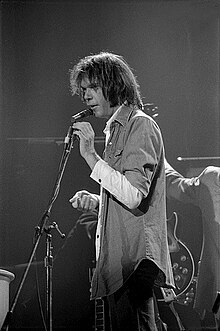After the immensely positive audience response to the Vegas concert, Barry decided to continue despite the pain, and the concert expanded into their last full-blown world tour of "One Night Only" concerts. The tour included playing to 56,000 people at London's Wembley Stadium on 5 September 1998 and concluded in the newly built Olympic Stadium in Sydney, Australia on 27 March 1999 to 72,000 people.
In 1998, the group's soundtrack for Saturday Night Fever was incorporated into a stage production produced first in the West End and then on Broadway. They wrote three new songs for the adaptation. Also in 1998, the brothers released "Ellan Vannin" for Manx charities, recorded the previous year. Known as the unofficial national anthem of the Isle of Man, the brothers performed the song during their world tour to reflect their pride in the place of their birth.
The Bee Gees closed the century with what turned out to be their last full-sized concert, known as BG2K, on 31 December 1999.
2000–2008: This Is Where I Came In and Maurice's death
In 2001, the group released what turned out to be their final album of new material, This Is Where I Came In. The album was another success, reaching the Top 10 in the UK (being certified Gold), and the Top 20 in the US. The title track was also a UK Top 20 hit single.
The last concert of the Bee Gees as a trio was at the Love and Hope Ball in 2002. Maurice Gibb died unexpectedly on 12 January 2003, at age 53, from a heart attack while awaiting emergency surgery to repair a strangulated intestine.










